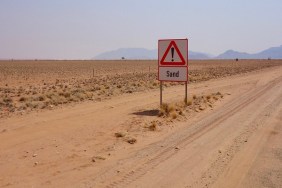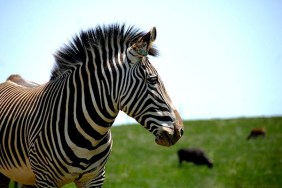(source: deestea)
Known interchangeably as the third rock from the sun, the world, the living planet, and simply, Earth, our planet is uniquely interesting in many ways that we often take for granted and don’t give a second thought to. Furthermore, while we’ve lived on the planet for over 200,000 years, we still haven’t unlocked all of its mysteries or learned to live in harmoney with all its different elements. Let’s take a look at some of the most interesting facts and mysteries surrounding the Earth.
4.6 Billion Years in the Making
(source: nationalgeographic)
According to most scientific estimates, our planet was formed approximately 4.6 billion years ago, and while life appeared within a billion years, evidence shows that modern human beings appeared only 200,000 years ago (in what is now known as Africa). While we have found conditions (such as the availability of water) on Mars that make it possibly the next most hospitable planet to host human and other organic life, we’re still decades away from that possibility. So far, Earth is the only place in the universe where life is known by humans to exist.
A Place to Call Home
(source: gmu, wikipedia)
Though dominated by human beings (primarily because of our highly developed brains and erect body carriage), the planet is home to millions of species. In fact, life existed for over 3 billion years before the first known signs of modern human beings appeared. A combination of Earth’s biosphere, atmosphere, and magnetic field permits the existence of life on the planet. According to scientific estimates, the world is expected to be able to support life for another 1.5 billion years, after which the radiance of the Sun will eliminate the biosphere and all existence with it.
The Human Impact on Earth
(sources: focusman5, scampychamp)
Even as we depict the Earth as the mother-like, life-giving and sustaining deity, human beings are one of the most destructive elements to have ever existed on the planet. Pollution, deforestation, habitat destruction, exhaustion of natural resources, erosion of natural wonders, premature and unnatural extinction of species, and general devastation are all a part of the legacy we will leave behind.
The Earth Around the World
(source: nationalgeographic)
From towering trees to exploding geysers and limestone cliffs to beautiful icebergs, our planet has some of the most beautiful landscapes and seascapes. Unfortunately we spend more time as consumers, actively engaged in the destruction of this beauty than we do actually appreciating it.





